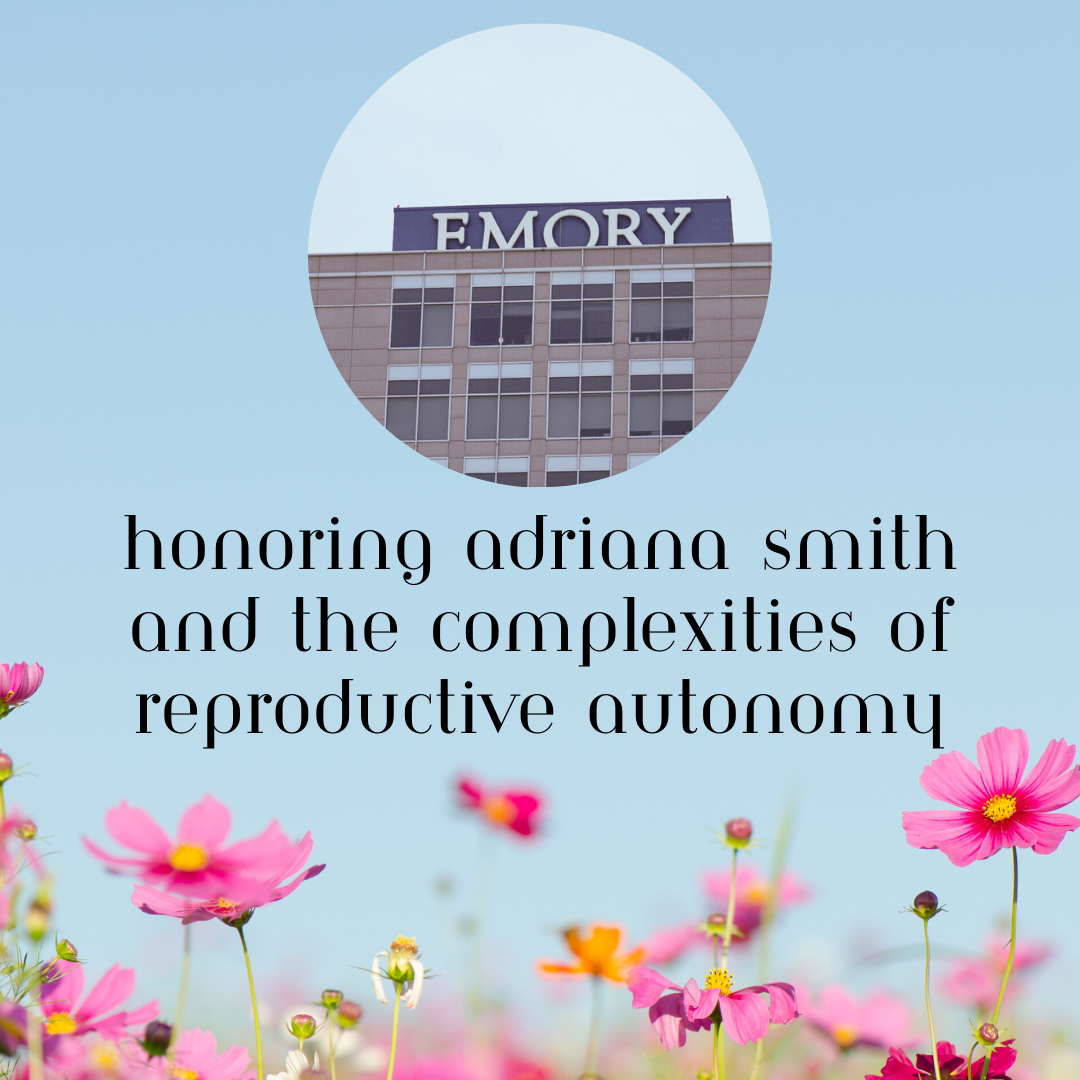What Adriana Smith’s Case Teaches Us About Bodily Autonomy and the Power of a Will:
(By a Full Spectrum Doula Who Supports Women Through Life’s Deepest Transitions)
As a full spectrum doula, my role is to support women and families through some of life’s most profound transitions. The recent case of Adriana Smith, a 30-year-old pregnant nurse from Georgia who was declared brain dead in February 2025, has deeply resonated within the birth support community. According to her family, Adriana has been kept on life support for over three months to allow her fetus, now at 21 weeks, to continue developing—an outcome compelled by Georgia’s strict abortion laws.
This case highlights the intricate and painful interplay between medical ethics, legal mandates, and family rights during unimaginably difficult circumstances. For birth professionals and families alike, Adriana’s story forces us to ask who gets to decide what “life” and “care” should look like—and at what cost.
The Intersection of Law and Personal Autonomy
Georgia’s “heartbeat law,” passed after the 2022 reversal of Roe v. Wade, bans abortion once fetal cardiac activity is detected—typically around six weeks. This law, which recognizes embryos and fetuses as “persons” under state law, has been interpreted to require that Adriana be kept on life support in order to preserve the pregnancy, even though she has been declared legally dead.
Her family, particularly her mother April Newkirk, is devastated. April has expressed the emotional toll this situation is taking on everyone who loved Adriana, especially with no guarantee that the fetus will survive or be born without complications. April told reporters that her daughter is being treated as “a tomb,” not a person, and that the law has removed her family’s right to make what they believe are the most loving and ethical decisions for both Adriana and the unborn baby.
This situation brings up deep concerns about bodily autonomy, consent, and how state laws can override a family’s ability to grieve and heal in their own way.
She Was a Woman with a Life, With a Choice, and now no Voice…
Adriana Smith was more than a patient, more than a case. She was a woman with a full life—a nurse, a daughter, and an expectant mother with hopes for her growing family. She had opinions, values, and relationships that made her who she was.
Now, that womanhood—her right to be more than a womb—is being overshadowed by legal rigidity. Her personhood, her dignity, and her voice have been eclipsed by the idea that her physical body can be kept functioning against her known wishes. It’s heartbreaking to see a vibrant, accomplished woman reduced to a passive role in a story she can no longer tell.
Even as the state insists on “protecting life,” it disregards the full scope of Adriana’s own.
The Medical Reality: Risks That Deserve to Be Heard
Adriana’s case also brings attention to a critical and often overlooked health issue: pregnant women are at increased risk of developing blood clots, particularly during and after pregnancy. Blood clots—especially deep vein thrombosis (DVT) and pulmonary embolism—can have fatal consequences if not quickly diagnosed and treated.
Women deserve attentive care, especially in pregnancy, when subtle symptoms can be signs of serious conditions. Adriana died of a blood clot—a tragedy that might have been prevented with timely intervention. While this is not the time to assign blame, it is the time to reflect. Black women in particular are more likely to have their pain ignored or downplayed, and this must change. Black women deserve to be heard.
What Could Have Made the Legal Struggle More Humane
As birth workers and advocates, we know that law and policy must be designed with real families in mind—not in abstraction. Adriana’s situation reveals some key failures in how current legislation interacts with critical care scenarios. Here’s what could have made this legal struggle more humane:
- Advance Directives Honored Across State Lines: Adriana’s family claims she had shared her wishes not to be kept on life support. At the time of this writing, no public record of a formal will or advance directive has been mentioned in her case. If such documentation exists, now would be the time for it to be brought forward and honored. This is exactly the kind of situation where a legally binding will or living directive could have offered clarity, authority, and compassion. Had her preferences been documented in a legally enforceable format, and honored across state lines, her family might have been empowered to make decisions rooted in love rather than legal conflict.
- Exceptions for Medically Futile Pregnancies: Georgia’s law could have included specific exemptions in cases where a pregnant person is declared brain dead or when medical professionals determine that fetal survival is unlikely. These clauses could allow families and doctors to make compassionate, case-by-case decisions.
- Ethics Panels with Family Representation: Laws mandating life support in pregnancy-related cases could require hospital ethics committees—including patient advocates and family representatives—to review each situation with urgency and transparency. This would help ensure families aren’t trapped in a legal and emotional limbo.
- Time Limits on Forced Interventions: Requiring indefinite life support in such cases places an enormous burden on grieving families. Policy reforms could include strict review windows—such as reevaluation every 7–14 days—with a mechanism for families to petition for termination of life support when it is clearly no longer appropriate.
- Family-Centered Legal Appeals Process: The law currently makes no room for Adriana’s loved ones to challenge the state’s decision in a timely or family-centered way. A more humane process would include expedited legal appeals with trauma-informed legal support for next of kin.
In short, the law should never rob families of their right to make informed, compassionate decisions during medical crises. Adriana’s story reminds us that justice isn’t just about protecting life—it’s about honoring dignity and grief, too.
A Note to Fellow Birth Workers and Doulas
As a full spectrum doula, I urge my fellow birth workers and doulas to share Adriana’s story widely. Please remind your clients often that if they ever feel their voice isn’t being heard, or that their wishes are being overlooked during pregnancy, birth, or postpartum, they should reach out to you immediately. We are their advocates and must stand ready to support them, especially when medical or legal systems fail to listen. justice isn’t just about protecting life—it’s about honoring dignity and grief, too.
Conclusion
Adriana Smith’s story is a poignant reminder of the real-life consequences of rigid legislation and one-size-fits-all definitions of personhood. As doulas, we are not only witnesses to birth—we are witnesses to the full spectrum of life, death, and everything in between. We advocate for families’ rights to make informed, autonomous decisions rooted in love, not legal fear.
Her case challenges us all—lawmakers, providers, birth workers, and communities—to create a world where compassion and care come first, even in the hardest of circumstances.


Leave a Reply